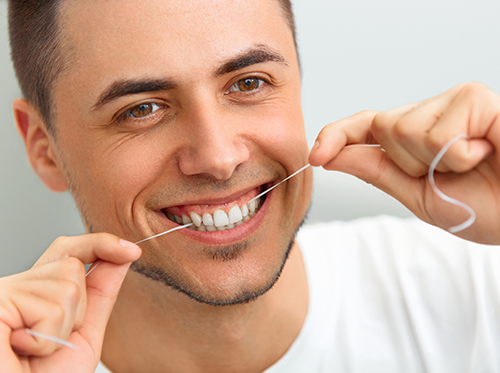Top Five Dental Myths
August 15th, 2018

Sometimes the line between fact and fiction is easily blurred. This is certainly the case when it comes to dentistry, where myths and misconceptions abound. In a bid to put an end to health hoaxes, here are five dental myths to chew over.
Sugar Is the Number One Culprit of Tooth Decay
Sugar will rot your teeth. If you’re a parent, chances are you tell your children this every time they ask for something sweet. And chances are your parents told you the same thing. There’s no denying that sugar leads to cavity formation, but it's not the number one culprit of tooth decay. Sugar adds fuel to the fire, but it doesn’t light the match.
Going to the Dentist Is a Painful Experience
There are people who don’t go to the dentist because they think it’s going to be a painful experience. It’s time to put this myth to rest. New dental technology, developments in anesthetics and analgesics, and more conservative dental procedures have made visits to our Michigan Center, MI office a more comfortable experience.
Bad Breath Means You’re Not Brushing
Poor dental hygiene can cause bad breath, but it’s not the only thing that will leave you looking for a breath mint. There are many factors that can cause bad breath, including illness, acid reflux, medication, and dehydration. In addition, sometimes what you eat or drink can give you bad breath no matter how many times you brush and floss. Next time you order a sub for lunch, skip the onions and garlic.
Bleaching Products Weaken Teeth
Gels, pastes, strips — there are all sorts of products available to make our pearly whites even whiter. If used according to the directions, bleaching products are harmless. They do not affect the health or strength of the teeth, only the color. At the same time, too much bleaching can cause temporary tooth sensitivity or irritated gums; the enamel, however, is not weakened.
You Will Know When You Have Tooth Decay
This is the type of false information that can lead to serious dental problems. There are no early symptoms of tooth decay. By the time you experience pain, your tooth decay has led to nerve damage, which means your decay is advanced and extensive. The only way to know if you have tooth decay —and to prevent it — is to visit Dr. Timm twice a year for a checkup and cleaning.



